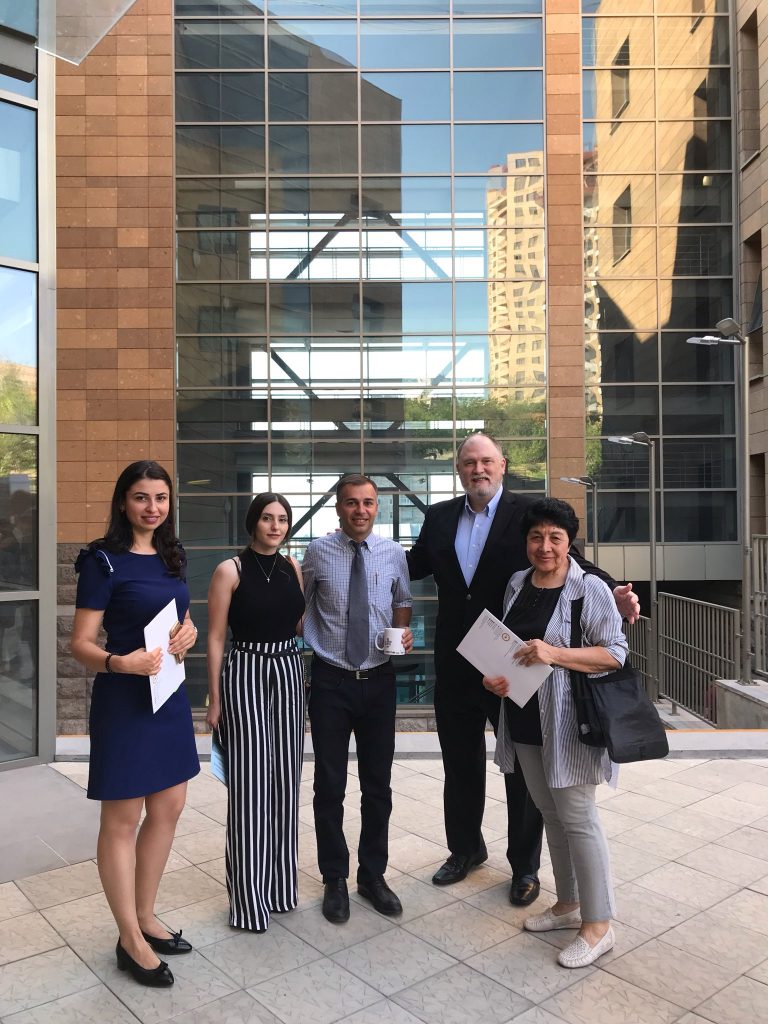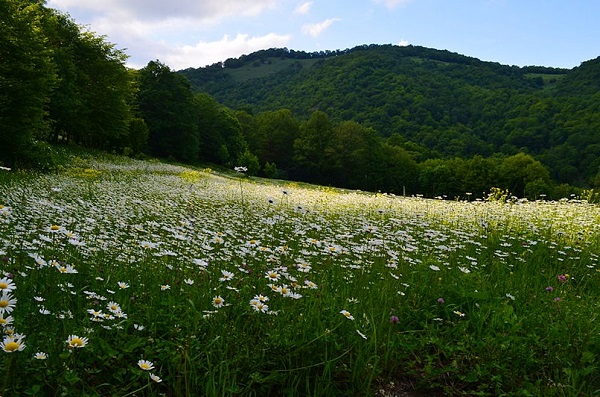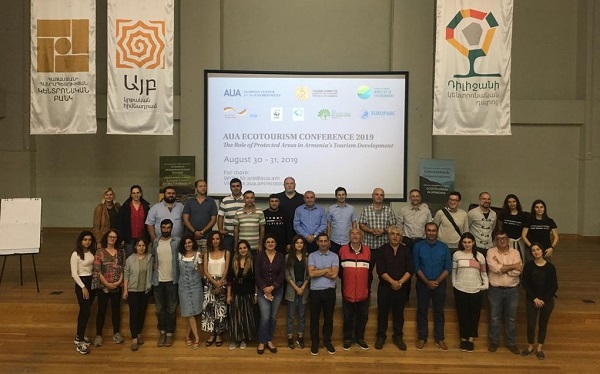The fourth annual AUA Ecotourism Conference was
held on August 30-31. The event was organized by the AUA Acopian Center for the
Environment. in partnership with the Tourism Committee of the Ministry of
Economy of the Republic of Armenia (RA), RA Ministry of Environment, WWF
Armenia and Transboundary Joint Secretariat funded by the KfW German
state-owned development bank and The International Ecotourism Society (TIES).
Experts from The International Ecotourism Society, EUROPARC Federation, and the
International Union for Conservation of Nature (IUCN) were among the key
speakers. The invited participants included tour operators, policy makers, and
protected area managers and experts.
This year’s Conference focused on the role of protected areas in ecotourism and
sustainable tourism development, which ensure protecting the environment and
enabling nearby communities to benefit from growth in tourism.
Protected Areas and the National/Regional Economy
Dr. Thiago Souza, from the IUCN Commission on Protected Areas’ Tourism
Specialists Group, talked about the global experience with investing in
protected areas and the returns to the national and regional economies.
“Politically, the value of investing in protected areas is often lost because
we typically don’t make an adequate economic analysis,” points out Dr. Souza.
He explains that in most places officials simply make an accounting or
financial analysis. That is, they look at the budget of the protected area and
the revenues generated from the entrance fees. “For most protected areas, the
fees would be substantially smaller than the budgets of the protected areas,” he
says. “In Brazil, for instance, budgets can be 9 times greater than fees
collected.”
But when an economic analysis is conducted, which considers more broadly the
visitor spending and the tax and multiplier effects of this spending, a very
different picture appears. “In Brazil, we’ve been able to show that for every
dollar budgeted amount spent on protected areas, the national economy gains 15
dollars. The returns on investment are staggering,” says Dr. Souza. Europe
shows smaller but still impressive numbers. Once adequate investments are made
in the protected areas and the needed infrastructure, every euro spent on
protected areas see 7 to 10 euros in GDP activity.
A 2015 study shows that there are an estimated 8 billion visits per year to
protected areas worldwide. This generates about US $600 billion per year in
direct in-country expenditures. (Balmford et al, 2015).
Growing Market of Ecotourism and Visiting Protected Areas
Jon Bruno, the executive director of The International Ecotourism Society,
offered a global perspective on the growth of the ecotourism sector. “Over 90
nations now have an ecotourism or sustainable tourism initiative nationally or
at a regional level. This has happened in the last 30 years; there is no other
form of tourism or industry that has become so fundamental to the global
economy so quickly.”
Mr. Bruno believes that this is a growing trend. And the travelers are
developing greater sensitivity toward sustainable tourism. He says, “Travelers
have greatly increased both their awareness of ecotourism and their willingness
to increase payment to ensure a sustainable travel experience. Seventy percent
of people under 30 say sustainable travel is a priority.”
This is a market for which countries like Armenia have to be prepared as part
of their efforts aimed at sustainable development. “Ecotourism and sustainable
tourism can help local communities economically and create engagement for
protecting their natural assets. Ecotourism provides the strongest community
revenue and the best return on investment,” emphasizes Mr. Bruno.

Need for Networks, Guidelines and Standards
Other key speakers at the Conference were Carol Richie, executive director, and Paulo Castro, council member of the EUROPARC Federation. The EUROPARC Federation is the network for Europe’s natural and cultural heritage. The Federation works to improve the management of protected areas in Europe through international cooperation, exchange of ideas and experience, and by influencing policy. The Federation currently has over 380 members in 37 countries. Armenia and its protected areas are eligible to become members of the Federation, which will offer connections with a wide network of protected area management and expertise.
One of the supports the Federation offers to members is the European Charter for Sustainable Tourism in Protected Areas. Ms. Richie explains, “Poorly managed tourism allows societal tensions to persist, weakens local communities’ connection to their heritage, landscape and environment, erodes cultures and values and does irreparable damage and change to nature, wildlife and the environment.”
She continues, “Through awarding the European Charter for Sustainable Tourism in Protected Areas, EUROPARC seeks to safeguard against this by fostering partnerships among local communities, protected area management, and tourism businesses. It does so with the aim of supporting local livelihoods, increasing awareness of the need for sustainability, and promoting cooperation locally, nationally, and internationally.”
Mr. Castro adds details on how the process of becoming a sustainable tourism chartered protected area works. “It’s not a fast process. You have to be patient and committed to a long term, multi-stakeholder process. And the applicant to the charter is the protected area management. They have to create a permanent forum for participation of all stakeholders. They have to also demonstrate that they have good coordination between public administrations of the environmental protection and tourism activities. Things that the protected area needs to show, for instance, is the creation and promotion of tourism products based on local resources,” says Mr. Castro.

Dilijan National Park
Panel Discussions and Site Visits
The conference included six panel discussions on key topics related to
sustainable tourism in protected areas. The panelists including government
officials, researchers, international organizations and NGOs active in
protected area support and tourism. The discussions helped identify the key
advantages and gaps in Armenia with respect to advancing sustainable tourism
connected with protected areas. The participants of the Conference also visited
the Dilijan Tourism Information Center, the Dilijan National Park Tourism
Visitor Center, and the Caucasian Red Deer Reintroduction Center to see
first-hand tourism infrastructures and offerings around one of the main
national parks in Armenia.
The Ministry of the Environment considers the conference to have been a
success, and initiatives are already underway to create a positive growth
strategy for ecotourism in both the protected areas of Armenia and in the
general tourism areas.
The International Ecotourism
Society frequently co-organizes conferences, seminars, and workshops. If
you would like to work with us on your event, please contact us at events@ecotourism.org

